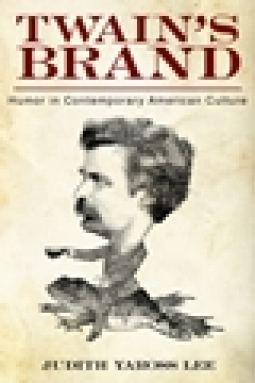
Twain's Brand
Humor in Contemporary American Literature
by Judith Yaros Lee
This title was previously available on NetGalley and is now archived.
Send NetGalley books directly to your Kindle or Kindle app
1
To read on a Kindle or Kindle app, please add kindle@netgalley.com as an approved email address to receive files in your Amazon account. Click here for step-by-step instructions.
2
Also find your Kindle email address within your Amazon account, and enter it here.
Pub Date Dec 04 2012 | Archive Date Apr 24 2013
Description
Samuel L. Clemens lost the 1882 lawsuit declaring his exclusive right to use "Mark Twain" as a commercial trademark, but he succeeded in the marketplace, where synergy among his comic journalism, live performances, authorship, and entrepreneurship made "Mark Twain" the premier national and international brand of American humor in his day. And so it remains in ours, because Mark Twain's humor not only expressed views of self and society well ahead of its time, but also anticipated ways in which humor and culture coalesce in today's postindustrial information economy--the global trade in media, performances, and other forms of intellectual property that began after the Civil War.
In Twain's Brand: Humor in Contemporary American Culture, Judith Yaross Lee traces four hallmarks of Twain's humor that are especially significant today. Mark Twain's invention of a stage persona comically conflated with his biographical self lives on in contemporary performances by Garrison Keillor, Margaret Cho, Jerry Seinfeld, and Jon Stewart. The postcolonial critique of Britain that underlies America's nationalist tall tale tradition not only self-destructs in A Connecticut Yankee in King Arthur's Court but also drives the critique of American Exceptionalism in Philip Roth's literary satires. The semiliterate writing that gives Adventures of Huckleberry Finn its "vernacular vision"--wrapping cultural critique in ostensibly innocent transgressions and misunderstandings--has a counterpart in the apparently untutored drawing style and social critique seen in The Simpsons, Lynda Barry's comics, and The Boondocks. And the humor business of recent decades depends on the same brand-name promotion, cross-media synergy, and copyright practices that Clemens pioneered and fought for a century ago. Twain's Brand highlights the modern relationship among humor, commerce, and culture that were first exploited by Mark Twain.
Judith Yaross Lee is a professor and director of honors tutorials in the School of Communication Studies at Ohio University. She is the author of Defining "New Yorker" Humor and Garrison Keillor: A Voice of America, both available from University Press of Mississippi.
Available Editions
| EDITION | Hardcover |
| ISBN | 9781617036439 |
| PRICE | $55.00 (USD) |
| PAGES | 240 |



